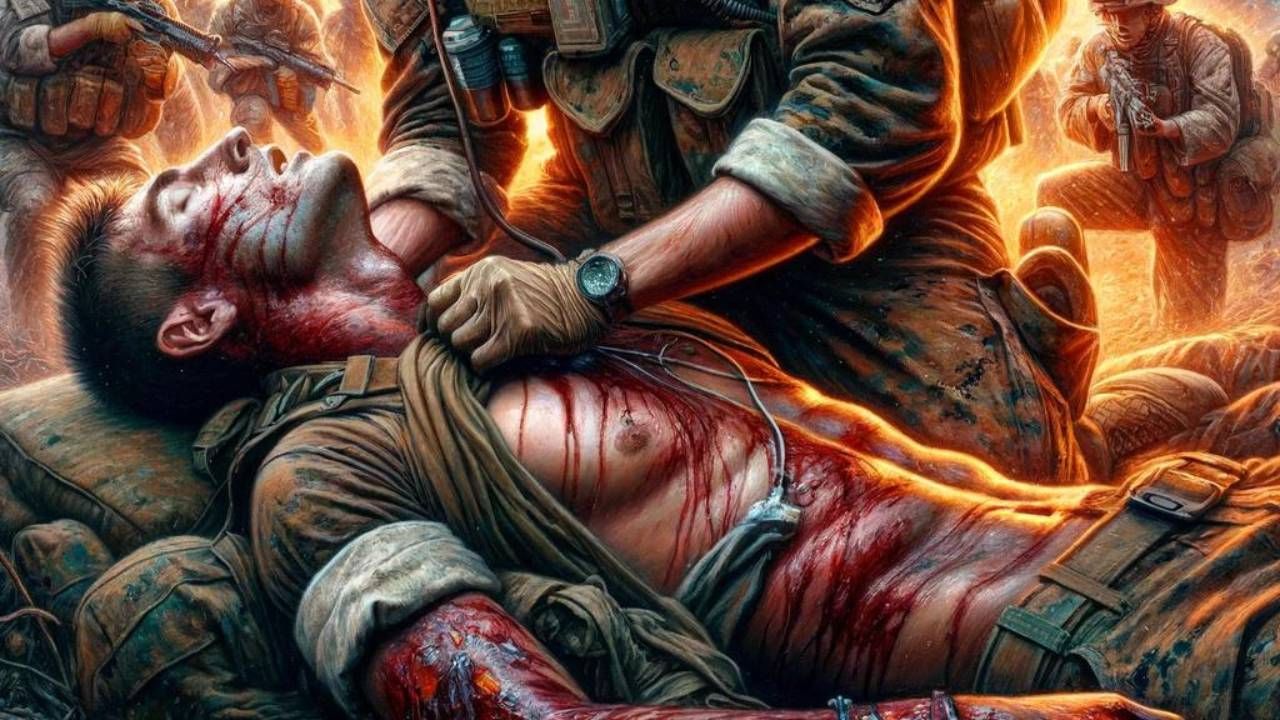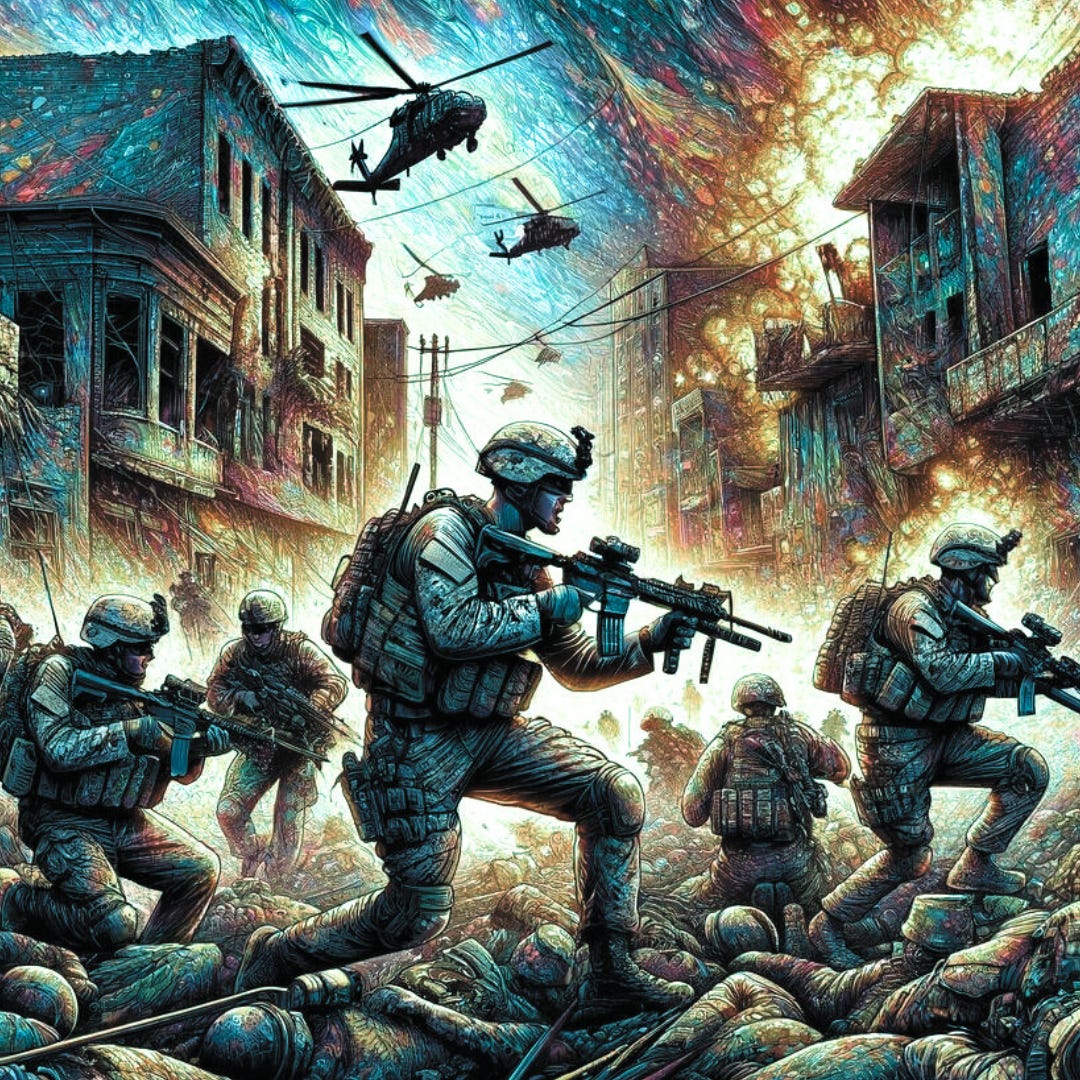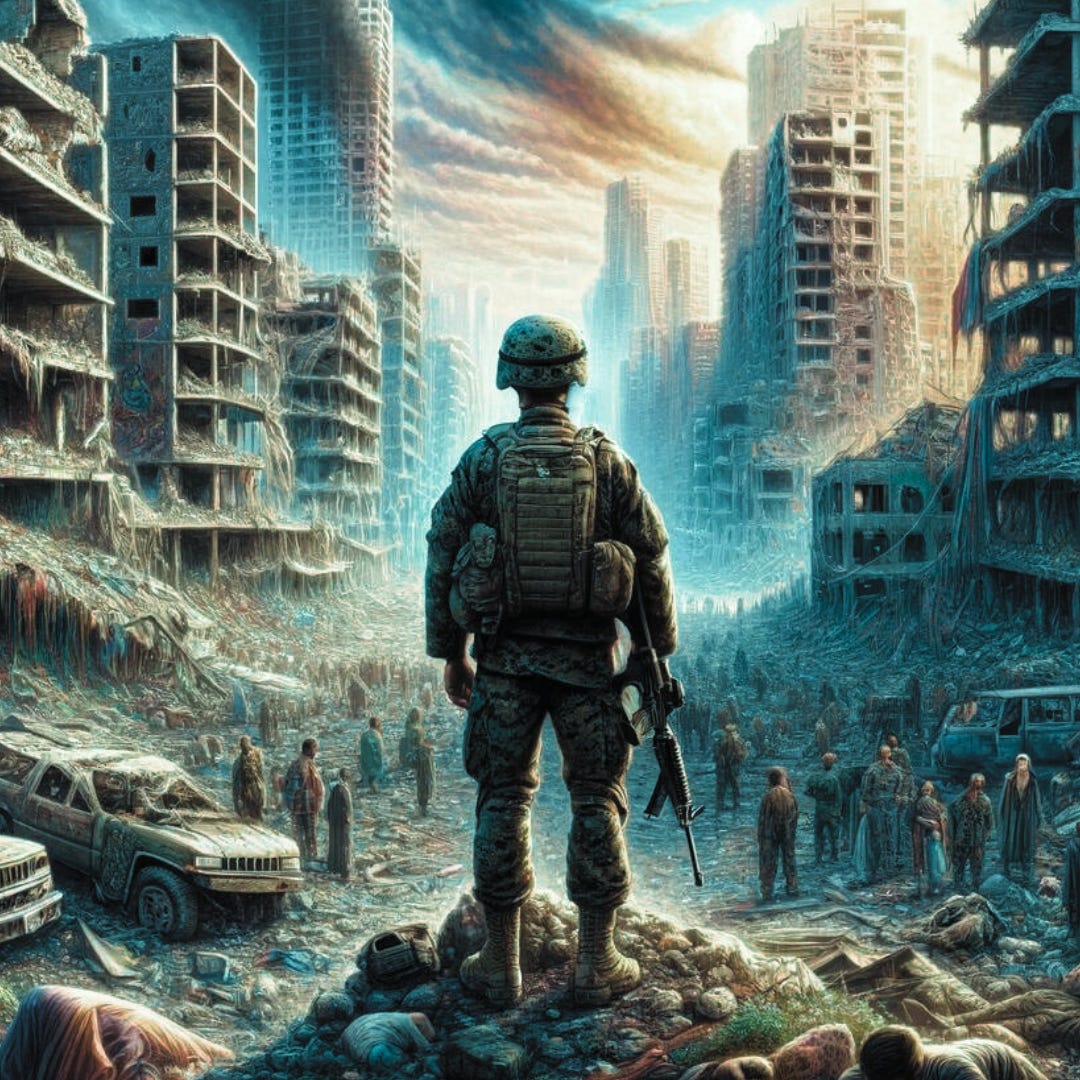Unveiling the Shadows: My Personal Struggle with Moral Injury
Feb 09, 2024
In 2019, during a critical turning point, I immersed myself in an intensive outpatient program at The Marcus Institute for Brain Health. It was there, amidst the struggle and the soul-searching, that the concept of moral injury was first introduced to me—a revelation that reshaped my understanding of the turmoil within. This newfound knowledge illuminated the shadows that had engulfed me, casting light on the profound guilt and shame that I carried.
The distinction between Post-Traumatic Stress (PTS) and moral injury became profoundly clear. PTS, with its intrusive memories and heightened state of alertness, seemed to capture only a fraction of the turmoil I felt. Moral injury delved deeper, striking at the core of my moral and ethical beliefs. It wasn't just about fear or survival; it was about the conflict between my actions and my innermost values, about the betrayal and the internal strife that eroded my trust in myself and the world around me.
As I navigated this newfound understanding, I realized that the symptoms I bore were manifestations of a much deeper wound—a wound to my moral conscience. The relentless feelings of guilt and shame were not just emotional responses; they were reflections of the moral dissonance I experienced. My worldview was fractured; I perceived the world as unpredictable and fraught with danger, leading to a state of constant existential anxiety.
My perception of myself had shifted dramatically. I saw myself not just as a survivor of conflict but as someone fundamentally flawed, marked by the actions and decisions of my past. This altered self-perception led to a profound sense of isolation. I felt disconnected from others, not just because of the physical distance or the differences in experiences, but because I believed that no one could truly understand or accept my burden of guilt.
The impact of moral injury extended beyond my internal world; it strained my relationships and interactions with others. The core beliefs that once facilitated trust and reciprocity were now tainted by doubt and detachment. I felt like an outsider in my own life, struggling to find a bridge back to the world I once knew.
As I confronted these challenges, the journey of healing began. It was a path marked by introspection, acceptance, and gradual transformation. The realizations that stemmed from understanding moral injury guided my steps, leading me away from self-destruction towards a path of self-compassion and growth.
This journey was not just about recovery; it was about rediscovery—of myself, my values, and my place in a world that had seemed alien. The process was slow and often painful, but each step forward brought a renewed sense of hope and purpose. As I embraced the practices of mindfulness, self-reflection, and affirmation, I began to weave a new narrative for myself—a narrative defined not by guilt and shame but by understanding, acceptance, and deep-seated compassion for the person I was and the person I was becoming.

Navigating the Moral Dilemmas of Military Service
In the crucible of military service, particularly in combat situations, service members are often thrust into high-stakes situations that demand immediate decisions, embedding an indelible imprint of ethical dilemmas within them. These challenging scenarios are not merely theoretical quandaries; they are vivid, real-life moments where one's moral and ethical convictions are pitted against the harsh realities of war. The nature of military operations, which often pivots on life-and-death decisions made amidst the fog of uncertainty and stress, can lead to intense ethical conflicts.
Service members grapple with a range of complex ethical dilemmas, each presenting its own set of deep moral quandaries:
Rules of Engagement vs. Self-Defense:
Service members often navigate the fine line between adhering to strict rules of engagement and responding to immediate threats to their safety or that of their unit. This balance becomes a moral tightrope when the need to protect clashes with the directives that govern the use of force.
Internal Question: "Do I follow the rules of engagement strictly, even if it means putting my or my team's lives at risk?"
Emotion: Conflicted between duty to follow orders and instinct to survive.
Collateral Damage:
Combat decisions are frequently made under severe time constraints and with incomplete information. The moral dilemma intensifies when actions aimed at achieving a military objective carry the risk of harm to civilians or destruction of civilian property, prompting a profound ethical struggle to balance military necessity against the potential damage to innocents.
Internal Question: "Can I justify harming innocents if it means achieving a critical military objective?"
Emotion: Tormented by the potential for innocent lives to be caught in the crossfire.
Obedience to Orders vs. Moral Convictions:
Military discipline is built on the bedrock of obedience to orders. Yet, there are times when the orders issued conflict starkly with an individual's personal ethics, international laws, or the principles of armed conflict. The decision to obey, question, or outright refuse these orders can become an immense ethical ordeal.
Internal Question: "What's the cost of disobeying an order that conflicts with my moral beliefs? And can I live with the consequences of obedience when it goes against my conscience?"
Emotion: Torn between loyalty to the chain of command and personal ethical standards.
Treatment of Prisoners and Non-Combatants:
Even amidst the chaos of conflict, international law and military codes of conduct dictate the humane treatment of prisoners of war and non-combatants. However, the reality of war can put service members in situations where they or their peers might be tempted or pressured to act in ways that breach these ethical norms.
Internal Question: "How do I reconcile the need for security with the ethical obligation to treat all humans, even enemies, with dignity?"
Emotion: Struggling with dehumanizing the enemy versus the humanity shared with all.
Loyalty vs. Ethical Conduct:
The close-knit bonds formed within military units can lead to ethical dilemmas where loyalty to comrades is at odds with ethical standards or legal norms. Service members may find themselves at a crossroads, choosing between reporting unethical conduct by their peers or superiors or staying silent in the name of loyalty.
Internal Question: "Is loyalty to my comrades more important than upholding the law and ethical conduct? Where do I draw the line?"
Emotion: Caught between the bond of brotherhood and the weight of ethical integrity.
Participation in Ambiguous or Controversial Missions:
Sometimes, service members are called upon to partake in operations whose legality, morality, or strategic value is under debate or scrutiny. Such participation can provoke ethical dilemmas, especially if the mission seems to counter one's values, international standards, or the professed values of the military organization.
Internal Question: "Do I participate in a mission that may conflict with my ethics or the international understanding of just war?"
Emotion: Faced with disillusionment and moral ambiguity, questioning the true purpose and morality of the mission.

Breaking the Stigma: A Comprehensive Approach to Understanding Moral Injury
Acknowledging the Reality of Moral Injury
The healing journey begins with acknowledging the very existence of moral injury as a distinct and severe issue, separate from but sometimes overlapping with PTSD. This acknowledgment must come from within the military community and society as a whole. Recognizing moral injury legitimizes the experiences of those affected, paving the way for appropriate support and intervention.
Fostering Open Dialogue
Open, honest conversations about the ethical dilemmas and moral burdens service members face are crucial for breaking down the walls of isolation and misunderstanding. By sharing these experiences, veterans and society can begin to comprehend the depth of moral injury.
It is essential to establish safe, non-judgmental environments where veterans can openly share their feelings and experiences. Whether through formal settings like therapy sessions and support groups or informal gatherings among peers, these spaces facilitate healing and understanding.
Integrating Philosophical Reflection
Encouraging veterans to engage with philosophical reflections on the moral dimensions of their service can significantly aid their recovery. This process might include exploring ethical theories, engaging in discussions, or reflecting on texts that resonate with their experiences, facilitating a deeper understanding of the moral complexities they face.
Encouraging Community and Societal Involvement
Healing from moral injury is a communal journey as much as a personal one. The community's support, understanding, and acceptance play a vital role in this process. Participation in community service or group activities can offer veterans a renewed sense of purpose and belonging.
Raising awareness and understanding among the public about the moral and ethical challenges veterans endure is critical for dismantling stigma. Educating society helps build a more empathetic and supportive environment for those grappling with moral injury.
Providing Professional and Institutional Support
Equipping healthcare professionals with the knowledge and tools to recognize and address moral injury is fundamental. This training should cover the unique aspects of moral wounds and the most effective strategies for treatment.
The military has a significant role in preventing and healing moral injury. By incorporating ethical training, offering resources specifically for moral injury, and creating a culture where seeking help is encouraged rather than stigmatized, the military can contribute to the well-being of its members.
A Journey Towards Understanding and Healing
We've delved deep into the complexities of moral injury, unraveling the layers of guilt, shame, and internal conflict that many veterans endure. By breaking the stigma, fostering open dialogue, and acknowledging the complex nature of moral injury, we aim to pave a path toward healing and understanding.
Part three will venture into "The Road to Reconciliation," exploring the promising horizons of psychedelic-assisted therapy as an emerging treatment alongside the enduring value of traditional and holistic approaches. Additionally, we'll offer guidance for therapists and clinicians, focusing on cultivating understanding and empathy, building trust and rapport, and tailoring therapeutic approaches to the unique needs of those grappling with moral injury. The importance of self-care for caregivers will also be a critical point of discussion, emphasizing the need to support the supporters.
This journey is not just about healing from the past; it's about redefining our future. It's an invitation for all of us—veterans, family members, therapists, and society—to reflect on our shared humanity and accompany each other home.
Stay connected with The Wounded Healer's Path Newsletter!
🔥 Join Us Around The Fire - Every Voice Matters 🔥
Storytelling isn’t just about recounting the past; it’s a profound way to pass down wisdom, preserve values, and navigate present challenges. These shared narratives give us the strength to heal, grow, and effect real change.
Be a part of this growing community. Sign up for our newsletter and dive into these powerful conversations that can help you transform your life. Let’s rekindle the fire of communal wisdom and storytelling, guiding each other toward a brighter future.
We hate SPAM. We will never sell your information, for any reason.
